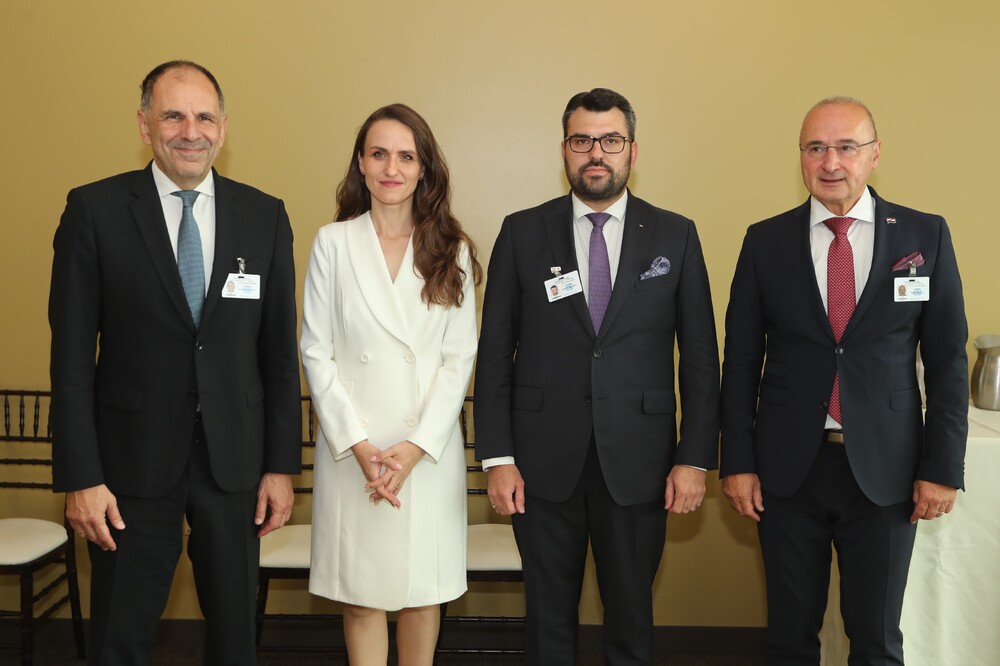site.btaSofia Says It Won't Accept Attempts by Skopje to Undermine 2022 European Consensus


Bulgaria will not accept any attempts by North Macedonia to circumvent the European consensus of July 2022, said Bulgarian Foreign Minister Georg Georgiev during a working breakfast with his counterparts from Greece, Romania, and Croatia. The meeting, held in the B4 format, took place on the sidelines of the 80th session of the UN General Assembly in New York, said Georgiev's Ministry Wednesday.
“Bulgaria has walked its own path to accept this agreement, which is grounded in the European Union’s fundamental value of human rights, the Minister argued. “We will not accept any political or legal moves by Skopje aimed at bypassing, renegotiating, or undermining the July 2022 consensus,” he stated.
According to the Bulgarian Ministry of Foreign Affairs, Georgiev emphasized that Sofia will continue to urge other EU member states to avoid any ambiguity in their policies that might encourage North Macedonia to pursue what he described as “unconstructive actions and statements.”
The "2022 European consensus" refers to an agreement among EU member states to allow the start of North Macedonia’s EU accession talks on certain conditions, including North Macedonia implementing changes in its Constitution and include in it the Bulgarian minority. The consensus was seen as a compromise to advance EU enlargement in the Western Balkans, while safeguarding the rights of national minorities.
During the meeting, the four foreign ministers reviewed the progress of the EU integration of six neighboring non-EU countries and discussed regional connectivity and military mobility.
“EU enlargement is a natural priority for all of us. While our national positions may differ on specific dossiers, we share common strategic interests. This is a solid foundation for close coordination on enlargement and other key EU agenda items,” Georgiev noted.
The Bulgarian foreign minister reiterated the importance of unanimity in EU decision-making and stressed that respect for minority rights and good neighborly relations must remain essential criteria in the enlargement process.
On regional infrastructure, Georgiev highlighted Bulgaria’s commitment to working with its EU partners and neighbors to complete major projects in road, rail, energy, and digital connectivity.
“These initiatives will expand the region’s economic, transportation, and energy capabilities,” he said.
He also voiced strong support for the continuation of the B4 format, calling it an effective example of how regional cooperation can strengthen the EU by focusing on shared priorities such as enlargement and connectivity.
The Bulgarian delegation to the 80th UN General Assembly High-Level Week is led by Prime Minister Rosen Zhelyazkov, and includes Foreign Minister Georg Georgiev, Justice Minister Georgi Georgiev, Health Minister Silvi Kirilov, Energy Minister Zhecho Stankov, Labor and Social Policy Minister Borislav Gutsanov.
/NF/
news.modal.header
news.modal.text